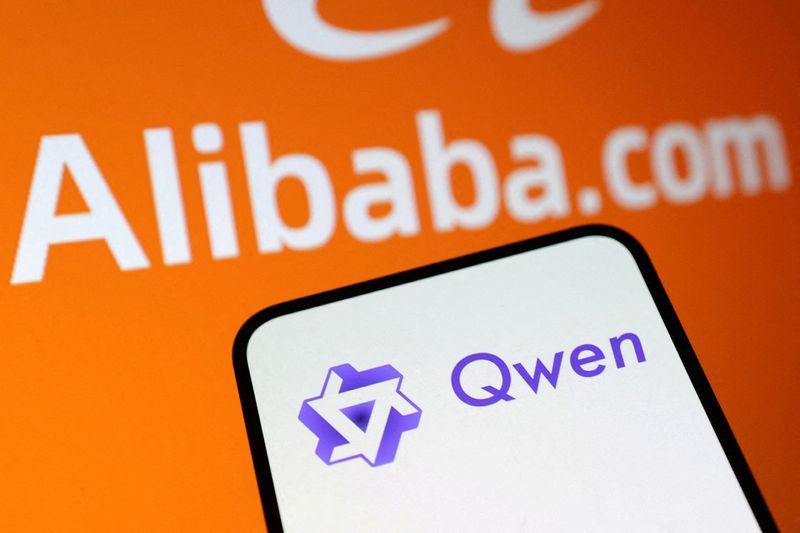Meet Qwen3: Alibaba’s AI Beast That Outperformed Gemini
In the ever-evolving world of artificial intelligence, new innovations often surface that challenge established models. One of the latest disruptors in the field is Qwen3, Alibaba’s AI powerhouse, which has shown impressive capabilities, even surpassing Google’s Gemini. Let’s dive into the details of Qwen3, how it compares to other models like Gemini, and why it’s making waves in the AI industry.
Introduction: The Rise of AI in the Tech Industry
Artificial Intelligence (AI) has evolved from a theoretical concept to a practical technology shaping industries, businesses, and lives globally. The competition among tech giants to push the boundaries of AI has never been fiercer. From Google to OpenAI and now Alibaba, every major player wants to lead in the AI race. With advancements in natural language processing (NLP), machine learning, and data analytics, AI systems are now more sophisticated than ever. Among the latest developments, Alibaba’s Qwen3 has risen to the occasion and, in some cases, outperformed even the mighty Gemini.
What Is Qwen3? Alibaba’s AI Evolution
Qwen3 is the third iteration of Alibaba’s AI model and represents a significant leap in their AI journey. Alibaba, primarily known for its e-commerce empire, has made remarkable strides in developing its AI capabilities, which now serve a variety of purposes—from logistics to customer service to AI-driven solutions for its cloud services.
The Origins of Qwen3: The Journey of Alibaba’s AI Development
Alibaba’s AI development has been years in the making. From its early days of creating AI algorithms to assist in product recommendations on its e-commerce platform to more sophisticated natural language models, Alibaba’s journey has been relentless. The Qwen series represents the culmination of decades of work in artificial intelligence, specifically in the areas of machine learning, natural language processing (NLP), and deep learning.
Key Features and Capabilities of Qwen3
Qwen3 stands as a remarkable example of artificial intelligence innovation, showcasing features that set it apart from its competitors in the industry. From understanding complex language to processing vast amounts of data at lightning speed, Qwen3 redefines what AI can do. Let’s dive deeper into some of its key capabilities and how they contribute to its strength in real-world applications.
Enhanced NLP Capabilities
One of the standout features of Qwen3 is its advanced natural language processing (NLP) capabilities. NLP is a critical component of modern AI, enabling machines to understand, interpret, and generate human language. With Qwen3, Alibaba has developed a model that excels in these areas, setting it apart from other AI systems.
-
Human-like Text Generation: Qwen3 is designed to produce text that feels incredibly human-like. It can generate responses that are contextually relevant, coherent, and sound natural, making it highly suitable for applications in conversational AI. Whether it’s for chatbots or virtual assistants, Qwen3 ensures users interact with AI in a seamless and engaging manner.
-
Understanding Context and Intent: Beyond simply generating text, Qwen3 excels in understanding the intent behind words and phrases. It can decipher nuances, slang, idiomatic expressions, and even sarcasm, something that earlier AI models struggled with. This makes Qwen3 an ideal tool for industries like customer service, where understanding the exact needs and tone of the user is crucial.
-
Multilingual Support: With the ability to process and generate text in multiple languages, Qwen3 is ideal for global applications. It can seamlessly switch between languages and provide relevant responses regardless of the user’s location, making it invaluable for businesses that operate in different regions.
Data-Processing Efficiency
In today’s data-driven world, the ability to quickly and efficiently process large volumes of data is crucial. Qwen3 is engineered to handle massive datasets with exceptional efficiency, setting it apart from other models that often struggle when working with large-scale information.
-
Faster Data Processing: One of the key benefits of Qwen3’s data-processing abilities is its speed. The AI model can process and analyze vast amounts of data in a fraction of the time it would take traditional systems or even other AI models. This enables businesses to make decisions faster, respond to customer queries more efficiently, and streamline operations across various sectors.
-
Real-Time Insights: Thanks to its speed and data-processing power, Qwen3 can provide real-time insights, which is essential for industries like finance, healthcare, and e-commerce. For instance, in finance, Qwen3 can analyze market trends in real time, enabling faster decision-making regarding investments. Similarly, in healthcare, it can process patient data instantly, offering healthcare providers immediate insights into patient conditions.
-
Scalability and Flexibility: Another key aspect of Qwen3’s data-handling ability is its scalability. Whether it’s processing small amounts of data or enormous datasets, Qwen3 can adapt to varying workloads without compromising performance. This is particularly beneficial for businesses that experience fluctuations in data volume or need to scale their operations quickly.
Advanced Machine Learning Techniques
At the heart of Qwen3’s capabilities is its sophisticated machine learning (ML) algorithms. These deep learning algorithms allow the model to continuously improve and adapt over time, enhancing its performance with minimal human intervention.
-
Self-Learning Ability: One of the most impressive aspects of Qwen3 is its ability to learn from new data continuously. As it is exposed to more information, it adapts and refines its models, improving its accuracy and efficiency. This self-learning mechanism makes Qwen3 highly flexible and capable of handling a wide range of tasks without requiring explicit programming for each new task. This adaptive learning process is vital for keeping up with evolving trends and needs in various industries.
-
Predictive Analytics: Qwen3 is also proficient in predictive analytics, using historical data to make predictions about future trends. This capability is widely useful across industries such as retail, healthcare, and logistics. For example, in retail, Qwen3 can predict consumer behavior based on past purchases and interactions, helping businesses personalize marketing strategies and optimize inventory management.
-
Integration with AI Tools and Platforms: Qwen3’s machine learning techniques also make it easy to integrate with other AI tools and platforms. This opens up opportunities for collaboration with existing AI systems, allowing businesses to build on top of the capabilities Qwen3 already offers. Whether it’s integrating with a customer relationship management (CRM) tool or a supply chain management system, Qwen3’s flexibility ensures that it fits into a wide range of business environments.
The Comparison: Qwen3 vs. Gemini
When it comes to AI development, one of the most talked-about models in recent times has been Gemini, created by Google. Both Qwen3 and Gemini are cutting-edge models, but how do they compare?
Gemini: Google’s Powerhouse AI
Gemini, the latest in Google’s AI advancements, has already made a significant impact with its ability to process information and assist with everything from personal assistants to business intelligence applications. Google’s AI model has become a standard in the industry, known for its robust and diverse features.
How Qwen3 Outperformed Gemini in Key Areas
Despite Gemini’s strength in AI, Qwen3 has managed to outperform it in several key areas:
-
Processing Speed: Qwen3 has demonstrated faster processing speeds than Gemini, handling complex tasks in a fraction of the time.
-
Scalability: Unlike Gemini, which often requires high-end infrastructure, Qwen3 is scalable and can be used across different systems without requiring significant resource investments.
-
Flexibility in Applications: Qwen3 has shown greater versatility in applications, whether for e-commerce, logistics, or customer service, whereas Gemini is somewhat limited to more specific tasks.
Qwen3’s Technological Advancements
The strength of Qwen3 lies in its technological advancements, which set it apart in the crowded AI field.
AI Innovation in Natural Language Processing
Qwen3’s NLP capabilities are some of the most advanced in the industry. It can understand and generate human-like text, making it ideal for a range of industries that rely on conversational AI, such as customer service and marketing.
Enhanced Data Processing Power
Qwen3’s data-processing capabilities allow it to analyze massive datasets at unprecedented speeds. This makes it particularly valuable for industries like finance, healthcare, and logistics, where real-time data processing is crucial.
Qwen3’s Impact on the Global AI Landscape
The introduction of Qwen3 has had significant implications for the global AI landscape. Alibaba’s focus on creating a more efficient, adaptable AI model has set the stage for new opportunities in various sectors.
What Does Qwen3 Mean for the Future of AI?
As AI continues to advance, Qwen3 signals a shift towards more accessible and powerful AI solutions. With its superior capabilities in speed, scalability, and adaptability, Qwen3 is poised to lead the AI revolution, providing businesses with tools to innovate faster and more efficiently.
Potential Use Cases of Qwen3 Across Various Industries
Qwen3’s versatility means it can be applied in numerous industries:
-
E-commerce: Automating customer support, personalizing shopping experiences, and optimizing logistics.
-
Healthcare: Improving patient outcomes through AI-driven diagnostics and personalized care.
-
Finance: Revolutionizing fraud detection, risk assessment, and financial planning.
The Competitive Edge of Qwen3 Over Other AI Models
Qwen3 has an edge over other AI models, including Gemini, due to several key factors.
Qwen3’s Speed and Efficiency
One of the standout features of Qwen3 is its efficiency. The model processes data much faster than Gemini, making it an ideal solution for applications requiring real-time analysis.
Scalability and Adaptability of Qwen3
Qwen3 is designed to scale, meaning it can be easily integrated into various systems without requiring major infrastructure changes. This adaptability makes it a valuable tool for businesses of all sizes.
Why Qwen3 Matters for Alibaba and the Global Market
Alibaba’s strategic investment in AI with Qwen3 is a reflection of its long-term vision to dominate the global tech market. By advancing AI technology, Alibaba is positioning itself as a major player in industries beyond e-commerce, including cloud computing, logistics, and healthcare.
Alibaba’s Strategic Vision with Qwen3
With Qwen3, Alibaba is making a strong push to rival major players like Google and Microsoft in the AI field. The company’s vision includes the integration of AI into its entire ecosystem, from cloud computing to online retail, which would make Qwen3 an indispensable tool in Alibaba’s portfolio.
Qwen3 vs. Other Competitors in the AI Market
While Gemini, OpenAI’s GPT models, and other AI systems continue to dominate the space, Qwen3’s capabilities put it in a unique position. Its blend of speed, efficiency, and scalability makes it one of the most advanced AI models available today.
What Sets Qwen3 Apart from Industry Giants?
Qwen3’s ability to operate in various environments and its diverse applications make it a formidable competitor. Its low-cost scalability also gives it an advantage over other models that require expensive resources to run.
Challenges Faced by Qwen3 and Alibaba’s AI Journey
While Qwen3 represents a major leap forward in artificial intelligence, it has not come without its fair share of challenges. Building an AI model that is both scalable and capable of handling complex tasks is no easy feat, and Alibaba has had to overcome numerous technical and strategic hurdles to bring Qwen3 to life. Let’s explore some of the most significant challenges Qwen3 and Alibaba have faced on their journey toward AI excellence.
Overcoming Technical Hurdles
Building a scalable, efficient, and accurate AI model like Qwen3 is not a straightforward process. While the AI community has made significant strides, there are still many challenges involved in developing systems that can handle complex datasets, adapt to new information, and perform consistently over time. Alibaba, in particular, has faced several technical hurdles along the way.
-
Refining Natural Language Processing (NLP) Capabilities: One of the biggest challenges was perfecting Qwen3’s NLP capabilities. Natural language processing is a critical area for any AI model designed for real-world applications like customer service, content generation, or conversational AI. In the early stages, Qwen3 had to be trained to understand various languages, slang, idiomatic expressions, and the nuances of human speech. This task was even more challenging due to the diversity in global languages and the wide range of cultural contexts in which the AI had to operate.
Ensuring that Qwen3 could accurately interpret and respond to diverse inputs required massive datasets, computational power, and ongoing refinements. Even small errors in NLP models can lead to significant issues, such as misunderstandings in customer interactions or errors in generated content. However, Alibaba’s ongoing improvements in Qwen3’s NLP capabilities allowed it to overcome many of these challenges, resulting in a model that can understand and generate contextually appropriate responses across multiple languages.
-
Handling Complex Datasets with Ease: Another challenge faced by Qwen3 was ensuring that the model could handle the massive volumes of data that modern AI systems must process. Data is the fuel that powers AI systems, and for Qwen3 to be truly effective, it had to be capable of ingesting, analyzing, and deriving insights from vast amounts of structured and unstructured data. Whether it’s processing text, images, or real-time data from sensors, Qwen3 had to be designed to handle different forms of information.
This posed significant technical challenges, especially when it came to maintaining accuracy while processing such large datasets. The AI had to be optimized for both speed and precision, ensuring that it could quickly process data while avoiding mistakes. To solve this, Alibaba invested in improving the infrastructure that supports Qwen3, incorporating high-performance computing and cloud-based solutions to ensure the model could scale as needed.
-
Ensuring Model Accuracy and Consistency: Another technical hurdle involved maintaining the consistency of the model’s output. AI systems like Qwen3 are expected to deliver accurate and relevant responses every time, regardless of the complexity of the input or the scale at which the system is operating. Ensuring this level of precision required extensive testing, continuous monitoring, and fine-tuning of the underlying algorithms. Despite these challenges, Alibaba’s AI team made significant strides in perfecting Qwen3’s ability to perform tasks consistently, ensuring that the model’s performance met industry standards.
Challenges of Competing with Google and OpenAI
Competing with tech giants like Google and OpenAI is a daunting task, especially when it comes to AI development. These companies have established themselves as leaders in the AI field, with billions of dollars in investments, massive datasets, and years of experience. Alibaba, however, is stepping into this space with a strategic approach, leveraging its strengths in cloud computing, e-commerce, and data analysis. Yet, this competition presents a series of challenges.
-
Innovation and Research Investment: One of the key challenges Alibaba faces is keeping pace with the rapid rate of innovation in the AI field. Google and OpenAI continuously push the boundaries of AI, developing new models and techniques that set new industry standards. For instance, Google’s Gemini model and OpenAI’s GPT models have received significant attention and investment, both of which are known for their sophisticated natural language capabilities. To remain competitive, Alibaba must continuously innovate and invest in research to ensure that Qwen3 doesn’t fall behind in terms of technology and performance.
This constant pressure to stay ahead requires a combination of cutting-edge research, talented engineers, and significant financial resources. Alibaba has committed to investing in AI, but it will need to maintain this level of investment and keep up with the evolving needs of businesses and consumers in order to sustain its competitive edge.
-
Attracting Top Talent: One of the most significant advantages of companies like Google and OpenAI is their ability to attract top talent in the AI field. These companies offer lucrative salaries, advanced research facilities, and the opportunity to work on groundbreaking projects. Alibaba, though it has a strong technical team, must continue to compete for the best minds in AI to ensure that Qwen3 remains at the forefront of innovation. With AI talent in high demand, Alibaba faces an ongoing challenge in hiring and retaining the brightest minds in machine learning, NLP, and other specialized areas.
-
Infrastructure and Resources: Another challenge in competing with Google and OpenAI lies in the sheer scale of infrastructure required to train and deploy advanced AI models. Both Google and OpenAI have massive computational resources and cloud-based infrastructures that allow them to scale their AI models to unprecedented levels. For Alibaba, replicating this level of infrastructure is an expensive and time-consuming process. While Alibaba has made strides in building its cloud computing services, it still faces challenges in creating an infrastructure that matches the scale and power of those used by Google and OpenAI.
-
Market Adoption and Perception: While Qwen3’s capabilities have made an impact in the AI landscape, gaining market adoption is a challenge that every new AI model faces. Google’s AI models, for example, have become widely adopted in various consumer products, from Google Search to Google Assistant. OpenAI’s GPT models are being used across industries for content creation, programming, and customer service automation. To compete, Alibaba needs to demonstrate the value of Qwen3 to businesses and consumers, showing that its AI model can provide tangible benefits over other options. Convincing businesses to switch to or adopt Qwen3 from well-established alternatives will require both a strong marketing strategy and proven results.
-
Regulation and Ethical Concerns: As AI technology continues to evolve, ethical concerns and regulatory challenges become more prominent. Governments around the world are increasingly focused on regulating the development and deployment of AI, and companies like Alibaba must ensure that their AI models adhere to these regulations. Ensuring that Qwen3 operates in a way that is both ethical and compliant with global standards is a challenge that requires careful planning and ongoing attention. With AI models becoming more influential in shaping industries, concerns around bias, fairness, and transparency must be addressed proactively.
Conclusion: The Future of AI with Qwen3 Leading the Way
Qwen3 is undoubtedly a game-changer in the AI space. By surpassing competitors like Gemini, it has set a new standard for what AI can achieve in terms of speed, scalability, and adaptability. Alibaba’s investment in Qwen3 is a clear indication of its commitment to shaping the future of AI. As we look ahead, Qwen3 is poised to play a pivotal role in various industries, ushering in a new era of AI-driven innovation.
Read Also 8 Ways AI is Transforming Cybersecurity Solutions
FAQs
1. What Is Qwen3’s Main Advantage Over Gemini?
Qwen3’s primary advantage over Gemini is its speed and efficiency. It processes data faster and can scale more easily, making it suitable for a wider range of applications.
2. How Does Qwen3 Benefit Alibaba’s AI Strategy?
Qwen3 enhances Alibaba’s AI strategy by providing a powerful tool that integrates seamlessly across its various business divisions, from e-commerce to cloud computing.
3. Is Qwen3 Available for Public Use?
Currently, Qwen3 is primarily used internally within Alibaba, but it may become available for broader use in the future as the company expands its AI offerings.
4. What Are the Key Technologies Behind Qwen3?
Qwen3 leverages advanced machine learning techniques, natural language processing, and data analytics to provide a robust and scalable AI solution.
5. Can Qwen3 Compete With OpenAI’s GPT Models?
Yes, Qwen3’s advanced processing capabilities and scalability make it a competitive contender against OpenAI’s GPT models, particularly in terms of real-time data processing and adaptability.




